A shroud of smoke from Australia's bushfires has caused chaos in Sydney, bringing dangerous air quality, setting off smoke alarms and ruining visibility in its typically sparkling harbour.
The haze on Tuesday was described by many people as the thickest to blanket the city amid this year's fire crisis.
It caused the cancellation of ferry and boat rides, while smoke permeating buildings forced evacuations citywide.
Locals described the situation as "apocalyptic" and "insane".
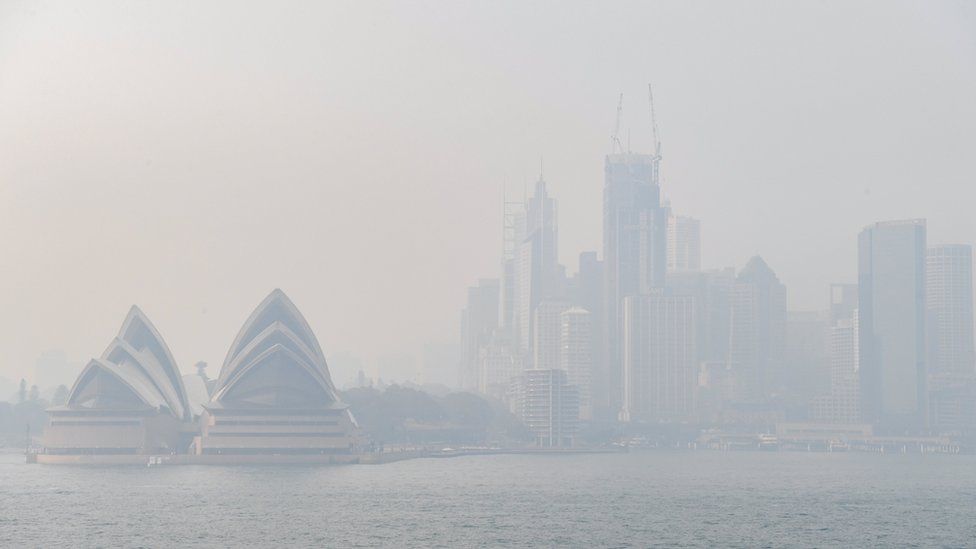 GETTY IMAGES
GETTY IMAGES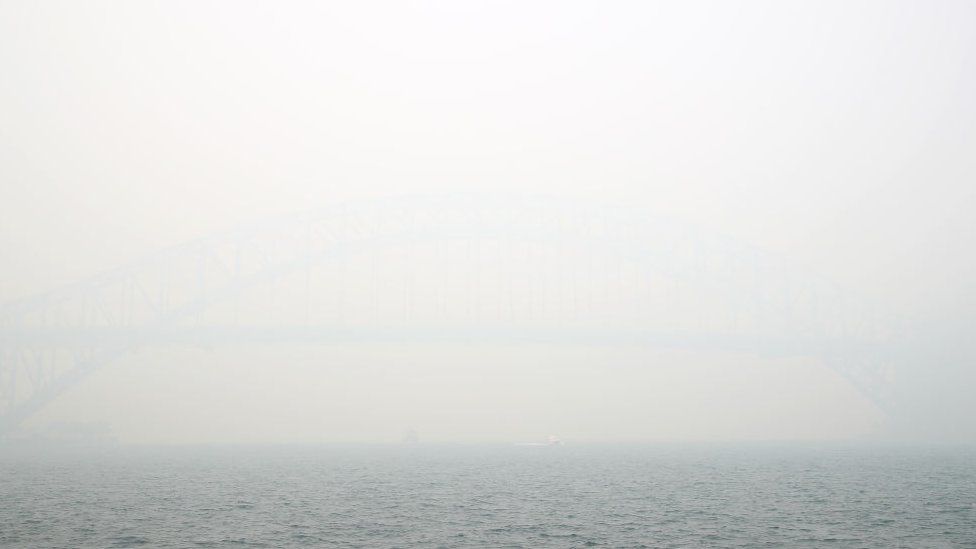 GETTY IMAGES
GETTY IMAGES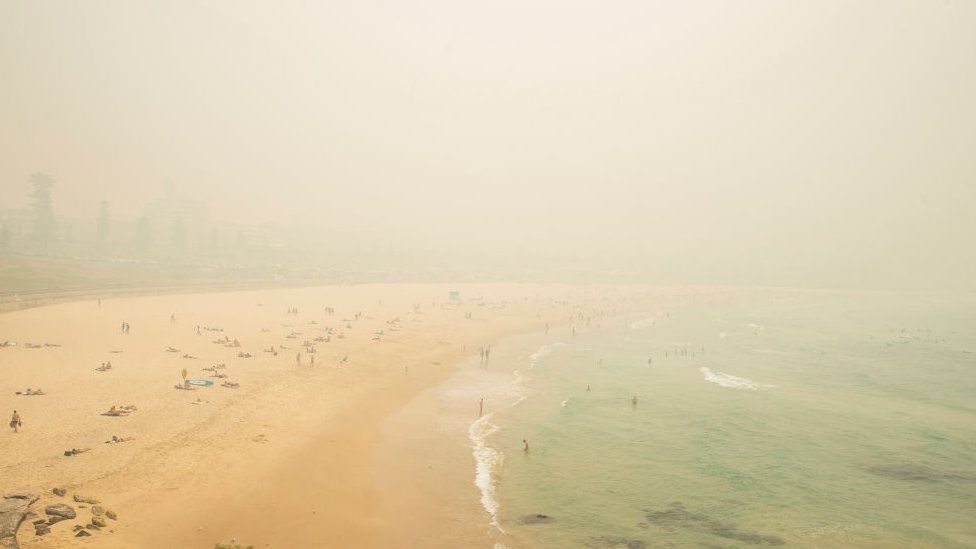 GETTY IMAGES
GETTY IMAGES
Online, Sydney residents reported breathing problems and said they were "choking" on the smoke.
The city has endured air quality surpassing "hazardous" levels for weeks, as about 100 blazes continue to rage throughout New South Wales (NSW).
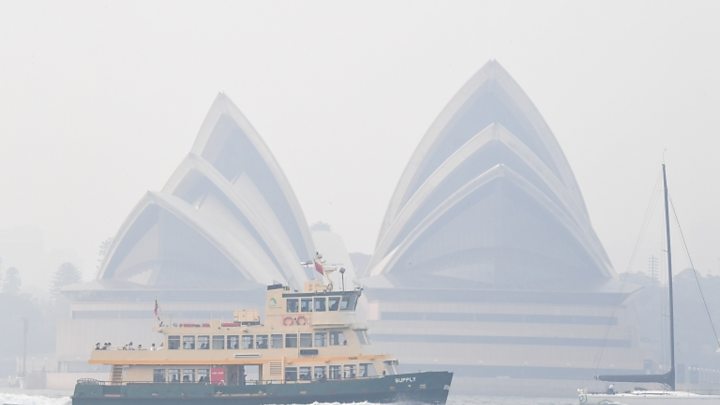
The closest fires are about an hour's drive away from Greater Sydney, which has a population of five million people.
Tuesday was "the worst smoke day yet", according to locals on social media. In previous days, ash has fallen from the sky.
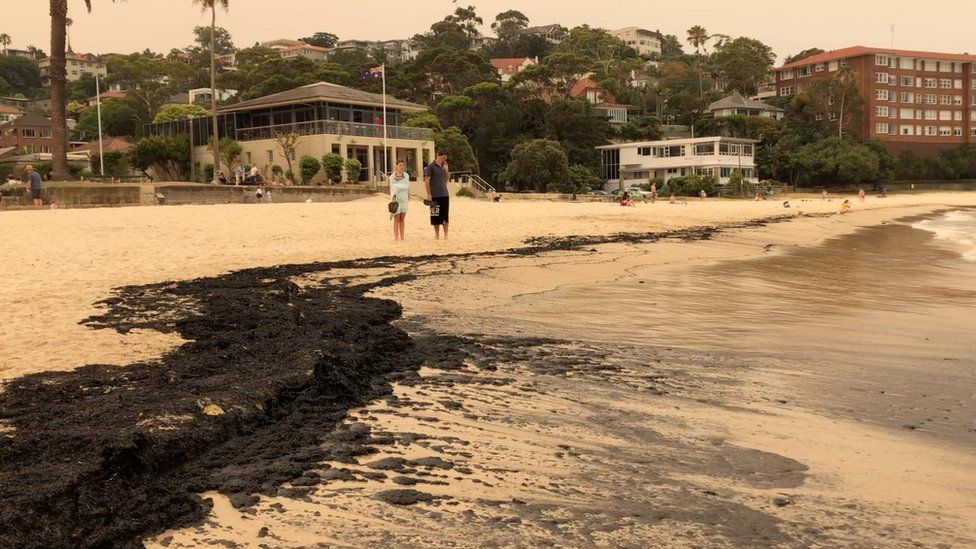 REUTERS
REUTERS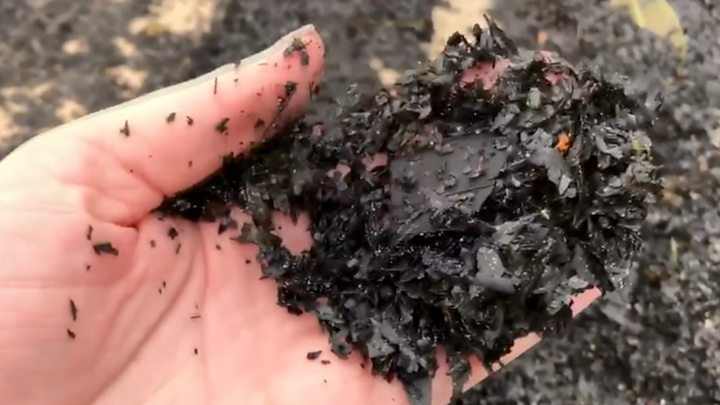
At its peak, air pollution in the city centre was 11 times worse than "hazardous" levels. It was even worse in suburbs and towns closer to the fires.
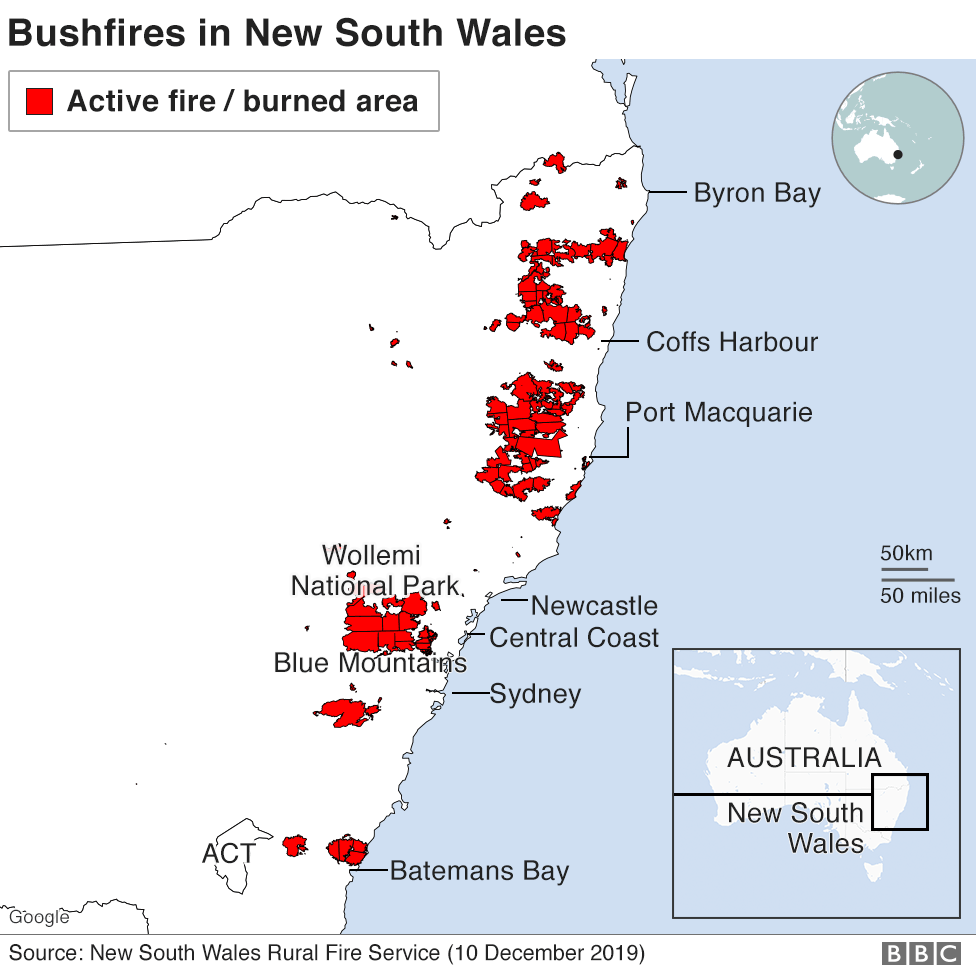
Several office buildings - including the headquarters of the NSW Rural Fire Service - were briefly evacuated after the smoke triggered indoor alarms.
Health officials advised people to stay indoors, while many who ventured outside donned face masks.
Hospital admissions have risen by at least 25% in the past weeks due to an influx of people with respiratory and breathing problems, officials said.
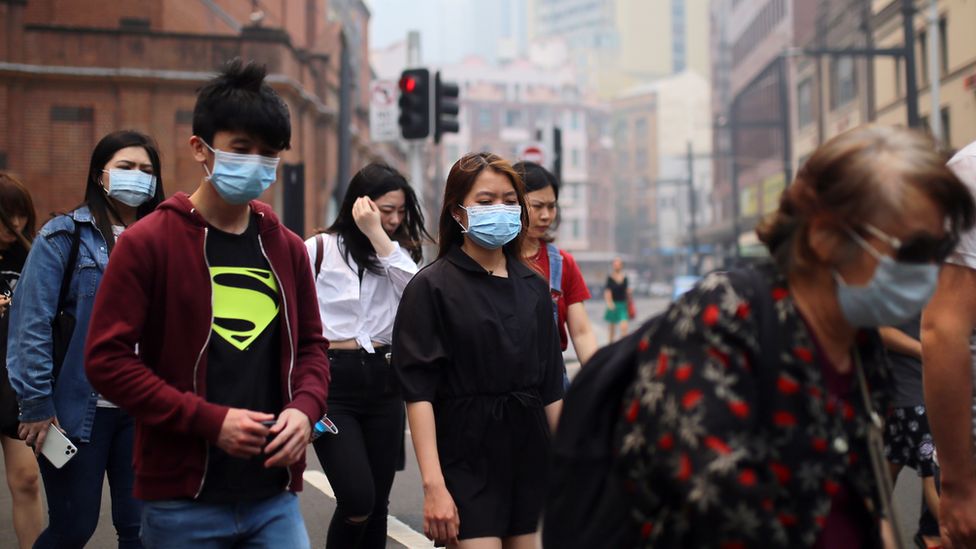 EPA
EPA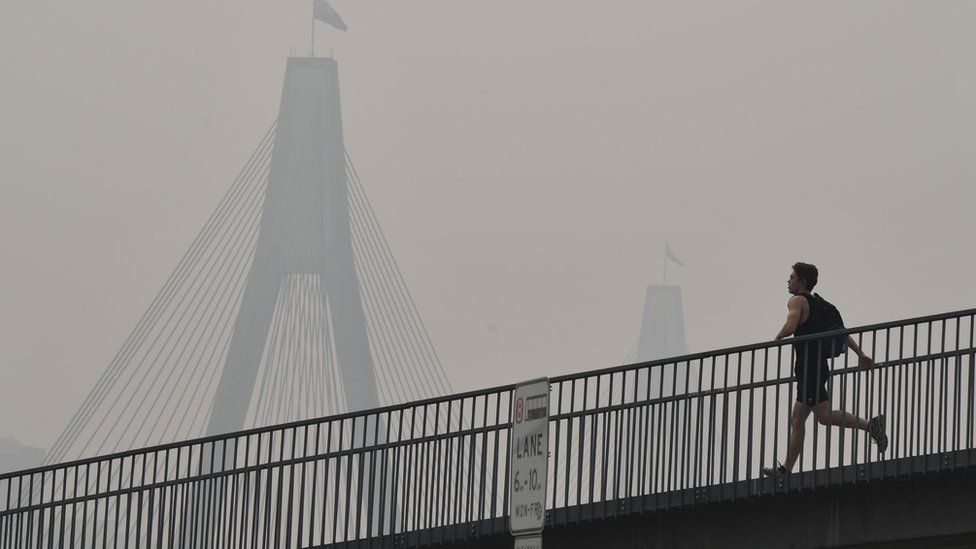 GETTY IMAGES
GETTY IMAGES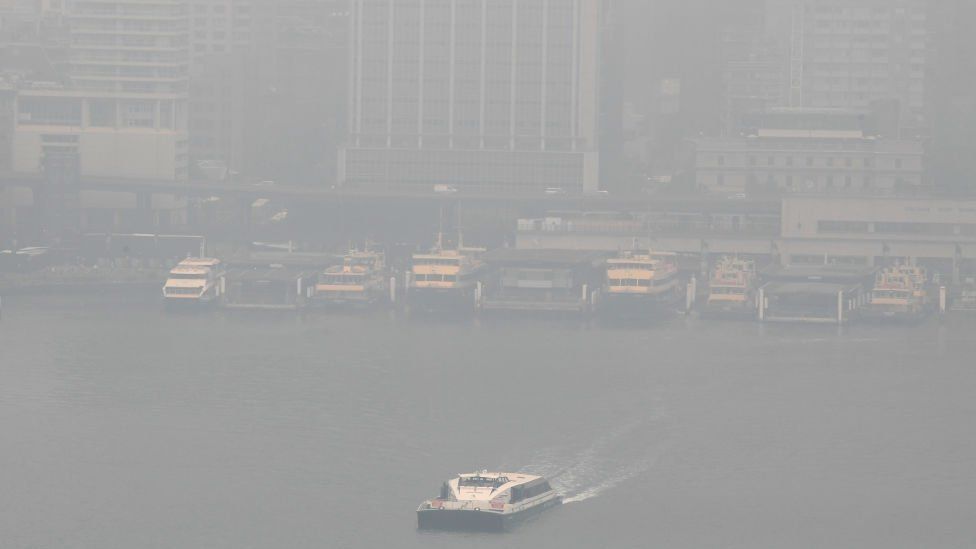 GETTY IMAGES
GETTY IMAGES
Daycare centres and schools were also keeping children inside during lunch and recess.
Last week, authorities said the stretch of air pollution was "the longest and most widespread" for the state on record.
"[We have] recorded some of the highest air pollution ever seen," the New South Wales government said.
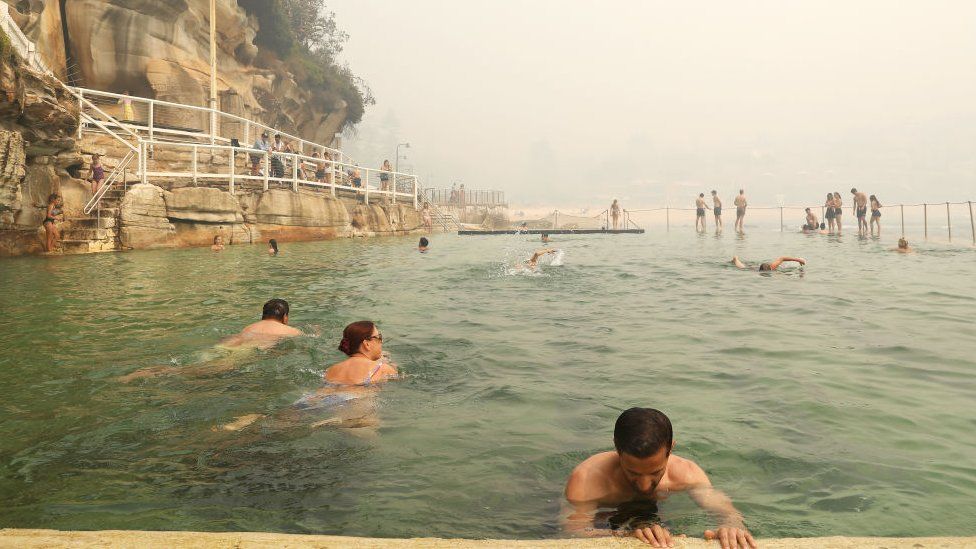 GETTY IMAGES
GETTY IMAGES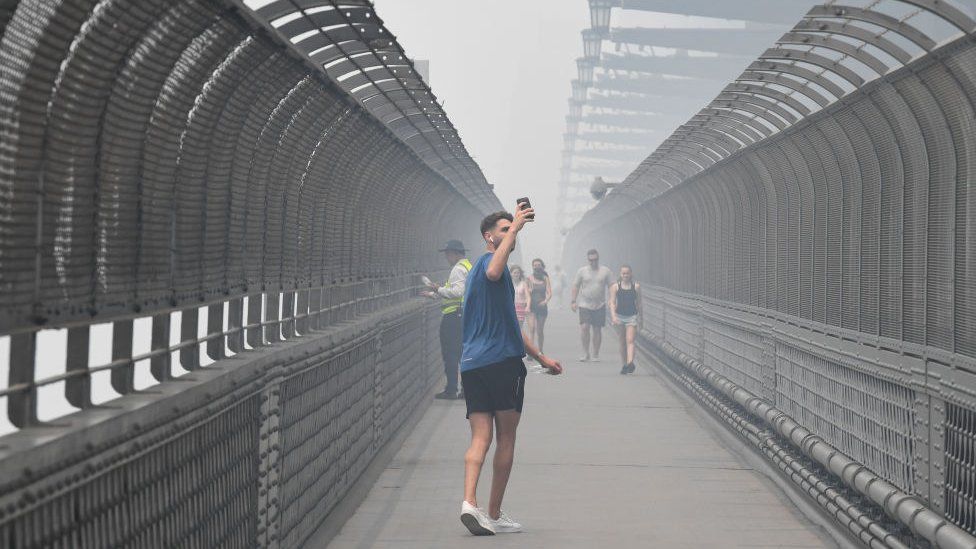 GETTY IMAGES
GETTY IMAGES
Six people have died and more than 700 homes have been destroyed in bushfires that have ravaged Australia since September. More than two million hectares of land has been scorched in NSW alone, officials have said.
Public anger towards Australia's conservative government - and its efforts to address climate change -has grown as drought, water and bushfire emergencies have persisted.
Prime Minister Scott Morrison addressed media in Sydney on Tuesday but did not comment directly on the smoke's impact.

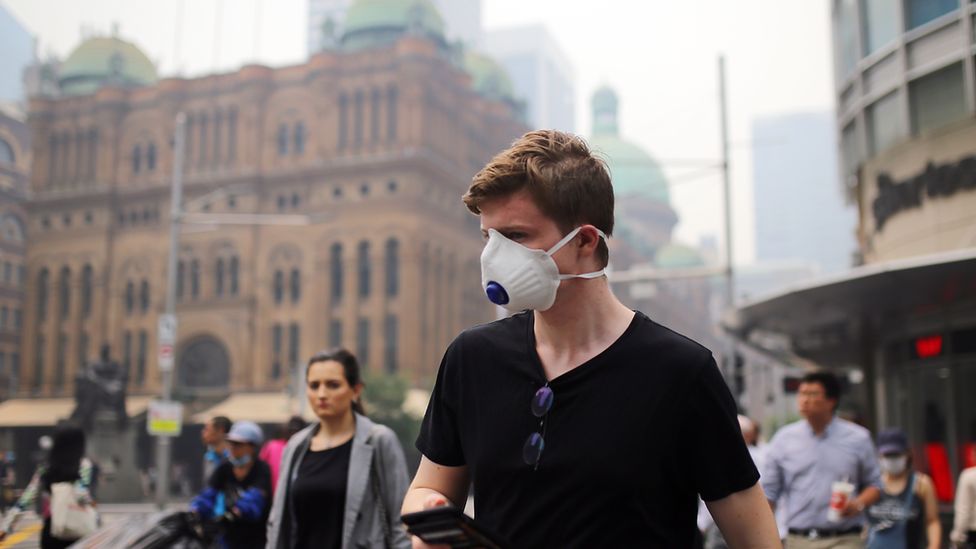


0 Comments